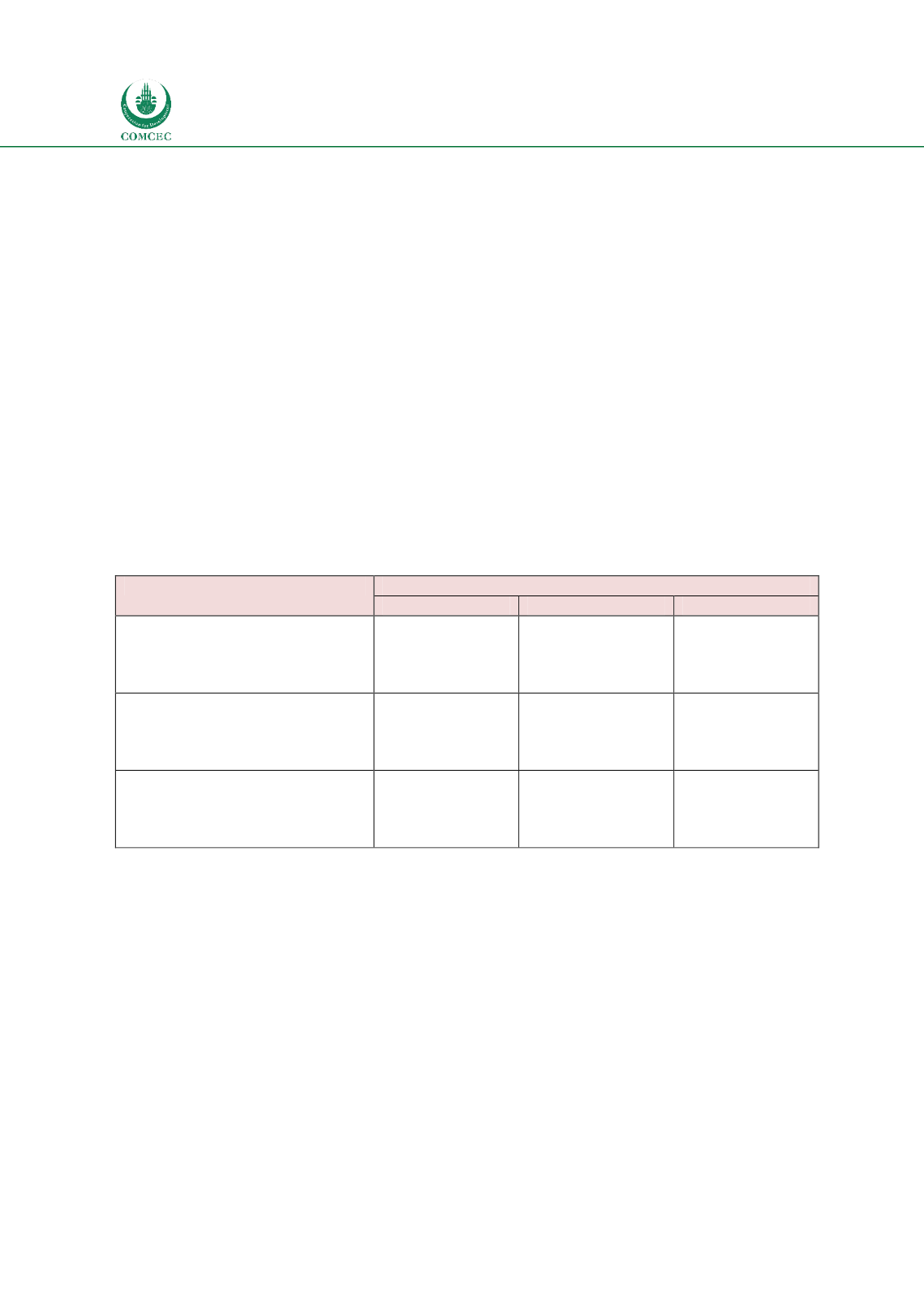

National and Global Islamic Financial Architecture:
Problems and Possible Solutions for the OIC Member Countries
194
The regulatory framework for Islamic finance in different countries can be assessed by
examining two institutional aspects: whether there is separate regulatory framework for
Islamic finance that is overseen by a specific department and whether specific regulatory
initiatives have been taken for Islamic finance. Note that while the former would usually imply
the later, there may be some cases where regulators may issue specific regulations related to
Islamic finance but do not have a separate department looking after regulatory issues of
Islamic finance. Category 1 is a robust regulatory framework where a country has specific
regulations related to Islamic finance that is overseen by a separate department that oversees
the Islamic financial sector. Countries in this group for the Islamic banking sector are
Indonesia, Malaysia, Oman, Pakistan and Sudan. All these countries, except Oman also have a
robust regulatory framework for the takaful and capital markets sectors. The second category
of countries are countries that do not have a separate department to deal with Islamic finance
but have separate regulatory guidelines for the industry. Countries in this category are Nigeria
and the UAE for all financial sectors and Oman for takaful and Islamic capital markets. The
third category of countries has the weakest regulatory framework with neither a department
nor specific regulations for Islamic finance. The countries included in this category are Egypt,
Saudi Arabia, Senegal and Turkey. Note that while in Bangldesh the regulatory body for the
banking sector has taken initiatives for Islamic banks, this is not the case for the takaful and
capital markets sectors.
Table
6.5: Status of Regulatory Framework
Institutional Setup
Financial Sectors
Banking
Takaful
Capital Markets
a)
Independent/separate
regulatory department and b)
specific
regulatory
initiatives
taken for Islamic finance
Indonesia,
Malaysia, Oman,
Pakistan, Sudan
Indonesia,
Malaysia, Pakistan,
Sudan
Indonesia,
Malaysia,
Pakistan, Sudan
a)
No
independent/separate
regulatory department and b)
specific
regulatory
initiatives
taken for Islamic finance
Bangladesh,
Nigeria, UAE
Nigeria,
Oman,
UAE
Nigeria,
Oman,
UAE
a)
No
independent/separate
regulatory department and b) no
specific
regulatory
initiatives
taken for Islamic finance
Egypt,
Saudi
Arabia, Senegal,
Turkey
Bangladesh, Egypt,
Saudi
Arabia,
Senegal, Turkey
Bangladesh,
Egypt,
Saudi
Arabia, Senegal,
Turkey
6.1.3.
Shariah Governance
The status of Shariah governance can be determined by different factors. First, the existence of
legal or regulatory requirements or guidelines related to Shariah governance issues. This
would be in the form of either the law and/or regulations specifying rules for a Shariah
governance framework at the financial institution level. Second would be the existence of a
national Shariah board to provide rulings and guidance to the Islamic financial sector on
Shariah related issues. Finally, some Shariah standards or parameters, either national or
international, exist that financial institutions are required to follow.
The status of Shariah governance regimes according to the criteria identified above in case-
study countries are shown in the table below. Three countries (Indonesia, Malaysia and
Pakistan) have robust Shariah regimes which have all three aspects of Shariah governance
elements. That is, they have laws/regulations regarding Shariah governance for financial
















